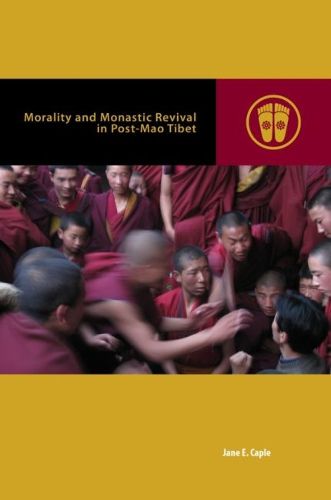Readings Newsletter
Become a Readings Member to make your shopping experience even easier.
Sign in or sign up for free!
You’re not far away from qualifying for FREE standard shipping within Australia
You’ve qualified for FREE standard shipping within Australia
The cart is loading…






The speed and extent of the Tibetan Buddhist monastic revival make it one of the most extraordinary stories of religious resurgence in post-Mao China. At the end of the 1970s, there were no working monasteries; within a decade, thousands had been reconstructed and repopulated. Most studies have focused on the political challenges facing Tibetan monasteries, emphasizing their relationship to the Chinese state. Yet, in their efforts to revive and develop their institutions, monks have also had to negotiate a rapidly changing society, playing a delicate balancing act fraught with moral dilemma as well as political danger. Drawing on the recent moral turn in anthropology, this volume, the first full-length ethnographic study of the subject, explores the social and moral dimensions of monastic revival and reform across a range of Geluk monasteries in northeast Tibet (Amdo/Qinghai Province) from the 1980s on.
Author Jane Caple’s analysis shows that ideas and debates about how best to maintain the mundane bases of monastic Buddhism-economy and population-are intermeshed with those concerning the proper role and conduct of monks and the ethics of monastic-lay relations. Facing a shrinking monastic population, monks are grappling with the impacts of secular education, demographic transition, rising living standards, urbanization, and marketization, all of which have driven debates within Buddhism elsewhere and fueled perceptions of monastic decline. Some Tibetans-including monks-are even questioning the good of the mass form of monasticism that has been a distinctive feature of Tibetan society for hundreds of years. Given monastic Buddhism’s integral position in Tibetan community life and association with Tibetan identity, Caple argues that its precarity in relation to Tibetan society raises questions about its future that go well beyond the issue of religious freedom.
$9.00 standard shipping within Australia
FREE standard shipping within Australia for orders over $100.00
Express & International shipping calculated at checkout
Stock availability can be subject to change without notice. We recommend calling the shop or contacting our online team to check availability of low stock items. Please see our Shopping Online page for more details.
The speed and extent of the Tibetan Buddhist monastic revival make it one of the most extraordinary stories of religious resurgence in post-Mao China. At the end of the 1970s, there were no working monasteries; within a decade, thousands had been reconstructed and repopulated. Most studies have focused on the political challenges facing Tibetan monasteries, emphasizing their relationship to the Chinese state. Yet, in their efforts to revive and develop their institutions, monks have also had to negotiate a rapidly changing society, playing a delicate balancing act fraught with moral dilemma as well as political danger. Drawing on the recent moral turn in anthropology, this volume, the first full-length ethnographic study of the subject, explores the social and moral dimensions of monastic revival and reform across a range of Geluk monasteries in northeast Tibet (Amdo/Qinghai Province) from the 1980s on.
Author Jane Caple’s analysis shows that ideas and debates about how best to maintain the mundane bases of monastic Buddhism-economy and population-are intermeshed with those concerning the proper role and conduct of monks and the ethics of monastic-lay relations. Facing a shrinking monastic population, monks are grappling with the impacts of secular education, demographic transition, rising living standards, urbanization, and marketization, all of which have driven debates within Buddhism elsewhere and fueled perceptions of monastic decline. Some Tibetans-including monks-are even questioning the good of the mass form of monasticism that has been a distinctive feature of Tibetan society for hundreds of years. Given monastic Buddhism’s integral position in Tibetan community life and association with Tibetan identity, Caple argues that its precarity in relation to Tibetan society raises questions about its future that go well beyond the issue of religious freedom.